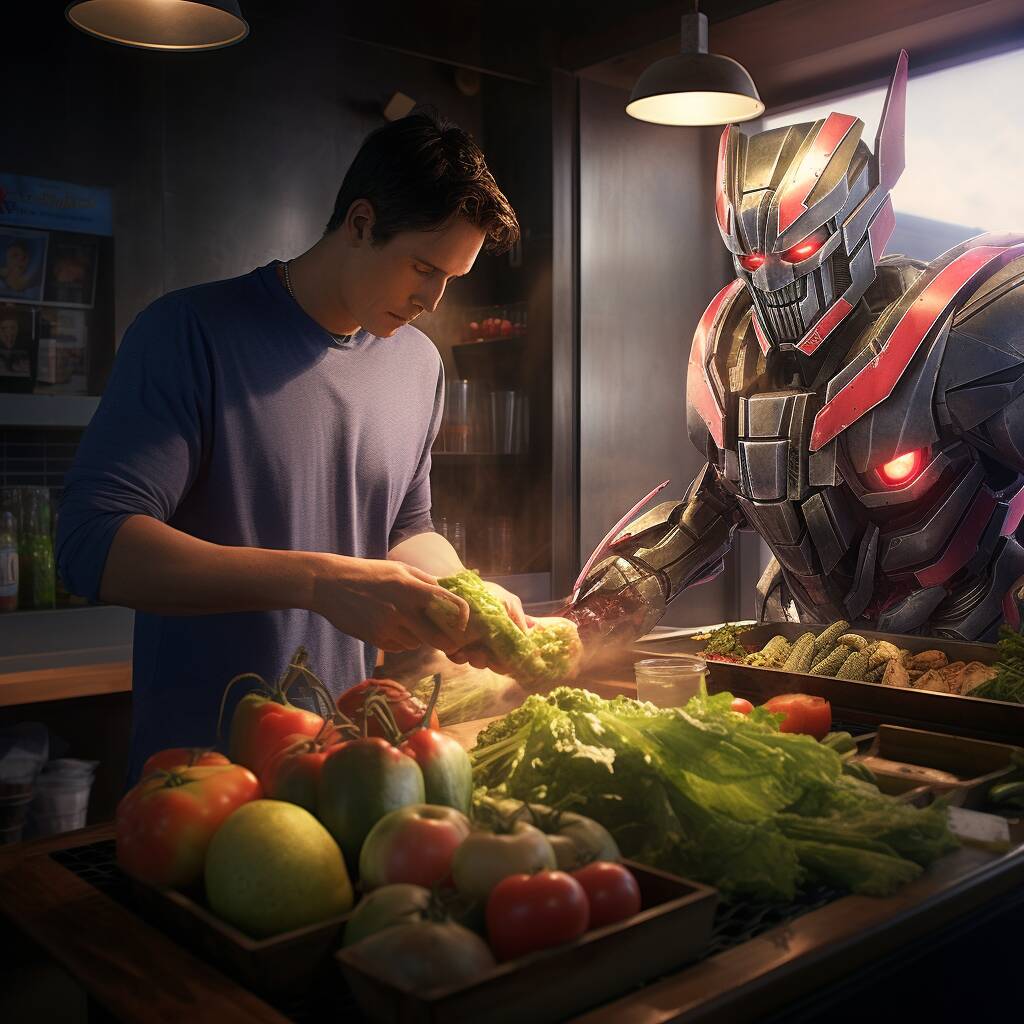Unhappy with the speed at which human workers prep avocados, Chipotle has introduced a robot to get the guacamole going.
The fittingly named Autocado (sigh) won’t do all the work, however. It’s an avocado prep machine that can cut, core and peel an avocado without the need for human hands but the rest of the mashing and seasoning process will continue to fall to Chipotle employees.
As anyone who’s made guacamole can tell you, getting the good stuff out of an alligator pear is definitely where most of the prep time is spent, and Chipotle said its new prototype could halve that labor investment. Chipotle said the entire process of making a batch of guacamole takes approximately 50 minutes, but didn’t specify how much of that time is spent prepping individual fruit.
Chipotle isn’t calling it automation, however - it insists Autocado is a “cobot,” or collaborative robot, that’ll allow employees to focus on more important tasks. “The intensive labor of cutting, coring, and scooping avocados could be relieved with Autocado, but we still maintain the essential culinary experience of hand mashing and hand preparing the guacamole to our exacting standards,” said Chipotle Chief Customer and Technology Officer Curt Garner.
Autocado, made by food industry automation company Vebu in partnership with Chipotle, can reportedly handle up to 25 lbs (11.3 kg) of avocados in a load. The machine moves and preps avocados, one at a time, depositing fruit in a stainless steel bowl, with peels and cores being dumped into collection bins.
Vebu said it eventually wants Autocado outfitted with machine learning and sensors that can evaluate the quality of each avocado in a bid to quantify waste reduction and improve efficiency. To be clear, these capabilities are planned for future Autocado iterations, meaning humans are hopefully still responsible for quality checks on the avocados before loading them into the machine.
Want some robo chips to go with that auto guac?
Autocado isn’t the only way Chipotle is waging war on time sunk into appetizer prep. Early last year the company announced “Chippy,” a machine that “integrates culinary traditions with artificial intelligence to make tortilla chips,” the company said.
Unlike Autocado, Chippy handles the entire chip-making process from masa to final seasoning and is even designed to replicate human inconsistency in salting and lime distribution. “To ensure we didn’t lose the humanity behind our culinary experience, we trained Chippy extensively to ensure the output mirrored our current product, delivering some subtle variations in flavor that our guests expect,” said Chipotle VP of Culinary, Nevielle Panthaky.
Chipotle has since integrated Chippy into one of its restaurants in Fountain Valley, CA, where testing is ongoing.
So, will saving half the prep time translate to free or reduced-price guac when or if Autocado gets beyond the prototype stage? Sorry: The company told The Register that it intends to maintain the same pricing for the green stuff.
As for whether it plans to fully automate the guac process, à la Chippy, Chipotle told us that “maintain[ing] the culinary experience” is essential, and as such it’ll continue to hand mash its guacamole “to our exact standards.”
But all it took in 2022, to go back to Panthaky’s description of Chippy last year, was the right AI “to ensure we didn’t lose the humanity behind our culinary [chip] experience.” By that measure, Autocado could certainly evolve given the right code.
Chipotle told us it sees additional uses of automation in other food prep areas, as well as dish washing, which are two areas it said store employees have expressed interest in. The company also sees future roles for AI assisting managers by, for example, calculating how much food the store actually needs to prep for a day to cut down on waste.
Chipotle isn’t calling it automation however…>
Next paragraph:
Autocado, made by food industry automation company Vebu in partnership with Chipotle>
Nice.
Yes, exactly! Frustrating to see this kind of double-speak.
Should’ve called it avoc-auto.
So, will saving half the prep time translate to free or reduced-price guac when or if Autocado gets beyond the prototype stage? Sorry: The company told The Register that it intends to maintain the same pricing for the green stuff.
In capitalist economics, the price of a product has no relation to the cost of producing it. The price is always whatever the market will bear. The sooner we understand this, the sooner we can stop asking silly questions and start asking correct ones. The robots could lower production costs to literally zero, and the menu price will not budge one cent. It is only on the macroeconomic scale, when you consider multiple competitors going in and out of business, that the cost of supply starts to matter and only the most efficient producers come out on top.
This is also why every company tries hard to avoid any competition by branching out into niche products. Chipotle has many fast-casual food competitors, but how many of them offer guac as a specific menu item?



